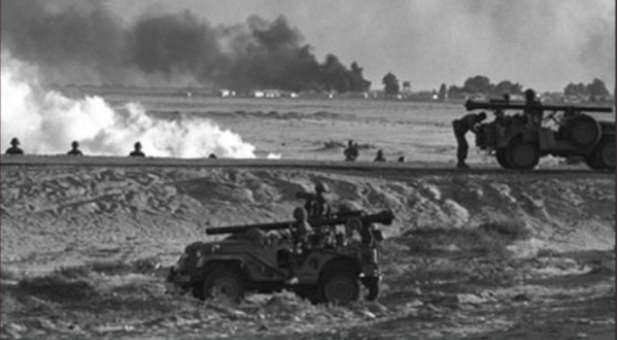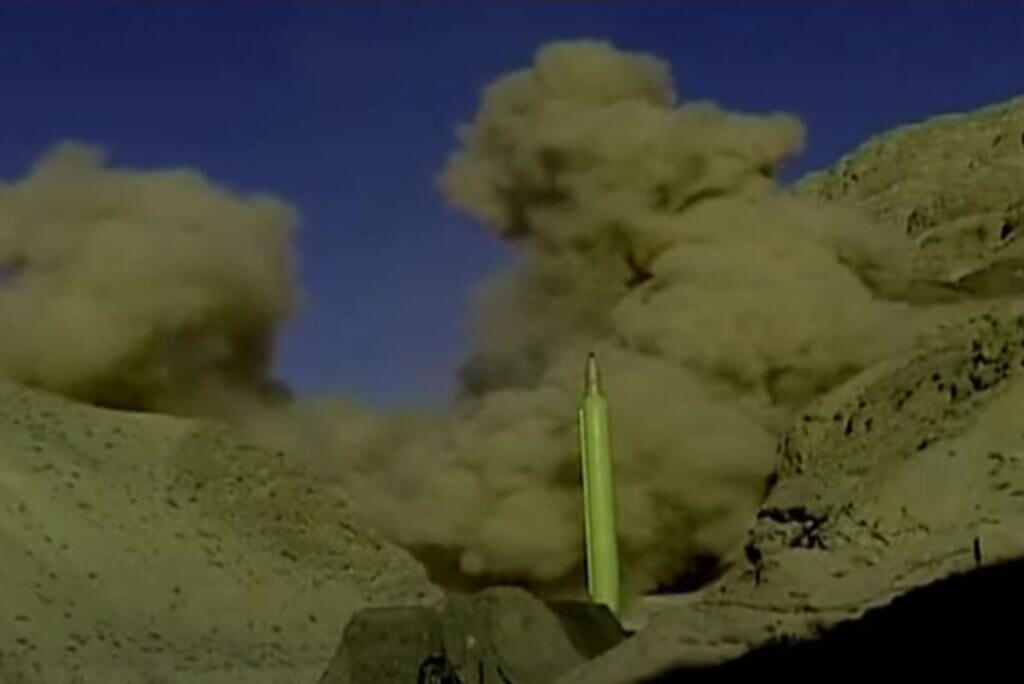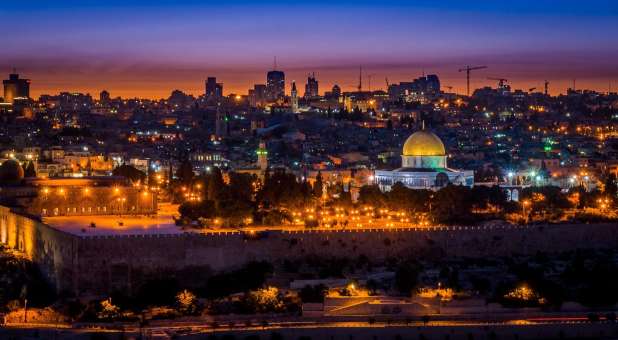Read Time: 5 minutes, 36 seconds
If you only follow international media, you’d believe that life in Israel is one of fear and danger because of threats from our Palestinian Arab neighbors. That the “occupation” is to blame, meaning Israel’s conquering Judea and Samaria (AKA the West Bank) during the 1967 Six Day War. By that narrative, if Israel were just to “give back” the West Bank, everything would be fine.
It’s not that simple.
The truth is, threats of terror and violence from Palestinian Arab (and other) terrorists long preceded the Six Day War, and long before the Arabs adopted the moniker “Palestinian” which, until 1948, was a term to identify the Jewish population of the land of Israel. It’s no secret that Palestinian Arabs blame Israel for its very existence. They call it the nakba, the catastrophe of Israel’s restoration to sovereignty.
The Six Day War was only a setback, they call it the naksa. This is clear as the Palestinian Arabs, and their governing body the Palestinian Authority (PA), have created an identity that is about persecution rather than prosperity, and destroying and delegitimizing Israel rather than building or investing in infrastructure for an independent state (along side Israel) which they claim is their goal.
One doesn’t have to look far to find countless examples of this. Recently, in one of the “best,” PA president Mahmoud Abbas made a horrific and offensive (not to mention grossly dishonest) claim of Israel committing “50 holocausts” against the Palestinian Arabs. When he and the PA had to walk that back, they clarified that they were talking about the crimes they allege by Israel, since its establishment in 1948, not the so-called occupation in 1967. Nuance is important.
There’s no question that while threats do exist, and Israel has to protect itself on and within its borders, and anything resembling peace remains elusive, amid the challenges there is still abundant co-existence between Israelis and Palestinian Arabs. That’s not depicted in the international media because it contradicts the simplistic and inaccurate narrative of Israel being the all-at-fault bad guy. As inaccurate as the international depiction may be, there are as many examples of the reality being different.
Recently, I had two unique experiences that cast light on different aspects of elements of this complex reality.
As president of the Genesis 123 Foundation, which builds bridges between Jews and Christians and Christians with Israel, I have been traveling throughout the Judean mountains south of Jerusalem this summer again, giving out cold watermelon and drinks to hundreds of soldiers. We want to share our appreciation and do something nice for soldiers standing out in the heat of the day keeping us safe. Because the money donated to pay for this comes from Christians all over the world, I am always clear to let the soldiers know that it’s coming from them, and we just have the privilege to deliver it.
One day recently, I went with a good friend, Marty, driving all throughout the Judean mountain region of Gush Etzion, south of Jerusalem, and throughout Hebron. Hundreds of kilos of watermelon and drinks elicited countless smiles of appreciation. Upon entering Hebron, the ancient city in which Abraham purchased burial plots for himself and Sarah, and where Isaac, Rebecca, Jacob and Leah are buried, I asked Marty if he thought we should offer watermelon to Palestinian Arabs who also live there. We agreed that we’d try. At one point when we stopped to give treats to soldiers, I noticed to pre-teen Arab boys sitting up the road in the direction we were heading. More than just sitting idly by, it seemed as if they were monitoring what was going on.
After getting back in the car I continued about 20 yards to where the boys were sitting. I pulled over next to them and asked, in English, if they spoke English to which they replied “no.” Since they seemed to understand something, I asked if they wanted watermelon, repeating it in Hebrew because I know the Arabic is similar, and know that they had been watching us give watermelon to the soldiers. I opened the door and began to get out which alarmed them. I tried to explain again I was just giving them watermelon. As soon as I got out of the car and went to the trunk where the watermelon was, they took off running. I tried to encourage them to come back, holding up a big red piece of fruit and gesturing that it was for them. One of the boys looked back and saw, but turned and sprinted to catch up to his friend.
Later on, we pulled up at a checkpoint where Palestinian Arab cars transverse the Jewish part of Hebron. We gave watermelon to the appreciative soldiers as a line of cars pulled up behind us. After giving the soldiers, I took the box in which I had the watermelon and walked over to the truck right behind us, offering watermelon to the Arabs inside. They accepted gratefully, thanking us in Arabic: shukran, to which I replied, you’re welcome: afwan. We exchanged smiles and went on our way.
On the way out of Hebron, we saw 5-6 Arab kids playing on the side of the road. So as not to alarm them as we had done earlier, I offered watermelon through the car window, speaking English. The kids didn’t seem to know what to make of us, but they didn’t seem too comfortable with it all and declined, thought they didn’t run away. Nearby, a teenage Arab boy came out of a shop and asked us to come to him, so we did. He saw the watermelon and asked in Hebrew, how much, as if we were a watermelon-mobile. I responded that it was free, and we were giving it to him as a gift. He smiled and accepted.
Then I asked him to tell the other kids nearby that we had just come to give them watermelon. He did, but they didn’t want to, or didn’t trust us, or both. In baseball terms, we’re batting 500. Not bad under the circumstances.
I know that Palestinian Arab kids are taught horrific things about Jews in their schools and broader Palestinian Arab culture, but I hoped that maybe, because there is so much coexistence (probably mostly among their parents’ generation), the rhetoric might not be believed by all. {eoa}
Note: This is the first of a two-part series.
Jonathan Feldstein was born and educated in the U.S. and immigrated to Israel in 2004. Throughout his life and career, he has been blessed by the calling to fellowship with Christian supporters of Israel and shares experiences of living as an Orthodox Jew in Israel. He is president of the Genesis 123 Foundation, which builds bridges between Jews and Christians.
See an error in this article?
To contact us or to submit an article























